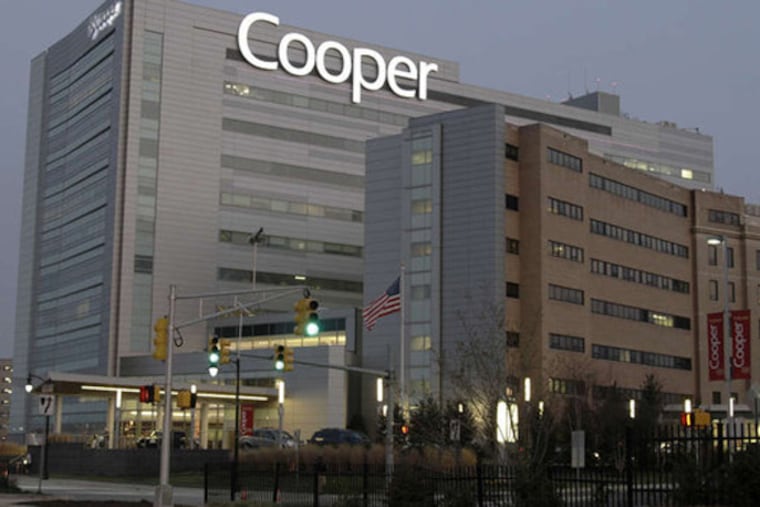Cooper Health disputes tax credit investigation report as ‘biased’ and misleading
“Despite its obvious bias and lack of due process, the report bolsters and supports what Cooper University Health Care has maintained from the beginning," spokesperson Thomas Rubino said.

Cooper University Health Care on Tuesday blasted a report released the night before by a state task force investigating New Jersey’s tax credit programs, calling it “one-sided” and misleading.
But Cooper, which won approval for a $40 million tax break in 2014, also seized on the report as further justification for the tax credit.
"The task force’s report is as expected — a biased, one-sided report with inaccurate assumptions, verifiably incorrect legal arguments, and misleading insinuations to support predetermined conclusions,” Cooper spokesperson Thomas Rubino said in a statement on Tuesday. “Despite its obvious bias and lack of due process, the report bolsters and supports what Cooper University Health Care has maintained from the beginning.”
The rebuttal came on the heels of a setback in court for Cooper, its board chairman George E. Norcross III, and several companies that jointly sued Gov. Phil Murphy in an effort to disband the task force.
Cooper and the other plaintiffs tried to block the release of the task force’s initial findings, but a Superior Court judge allowed the report to become public in a ruling Monday evening.
Investigators said they found evidence that Cooper sought to boost the size of its tax break by falsely claiming it had been pursuing an alternative site location in Philadelphia. At stake were about 350 administrative jobs it was moving from Cherry Hill and Mount Laurel.
Rubino said Cooper never claimed that jobs would leave New Jersey. He noted that Cooper’s application, certified by its CEO, said jobs were not at risk of being located outside the state.
The task force had pointed to a November 2014 email in which a Cooper executive, Andrew Bush, asked a real estate broker to send a term sheet for a “credible” alternative location, even though Bush wrote there was “no probability” the company would end up moving there.
According to investigators, that meant Cooper was seeking a “sham term sheet” that it could submit to the state’s Economic Development Authority, as evidence of plans to move outside New Jersey.
Had EDA known that Cooper was not considering the Philadelphia site, the agency would have approved an award of just $7 million, the task force said.
But Rubino said that it was the EDA that initiated the discussion about comparable cost data for an out-of-state location — and Cooper obliged the request. (In the task force report, two EDA staffers denied that version of events.)
“It was clear Mr. Bush was seeking ‘comp’ cost data and wanted it quiet because Cooper had no intent to move out of state,” Rubino said. “Cooper did not want Realtors in the city to believe it was actively looking for property, because it was not. This email supports Cooper’s version of events.”